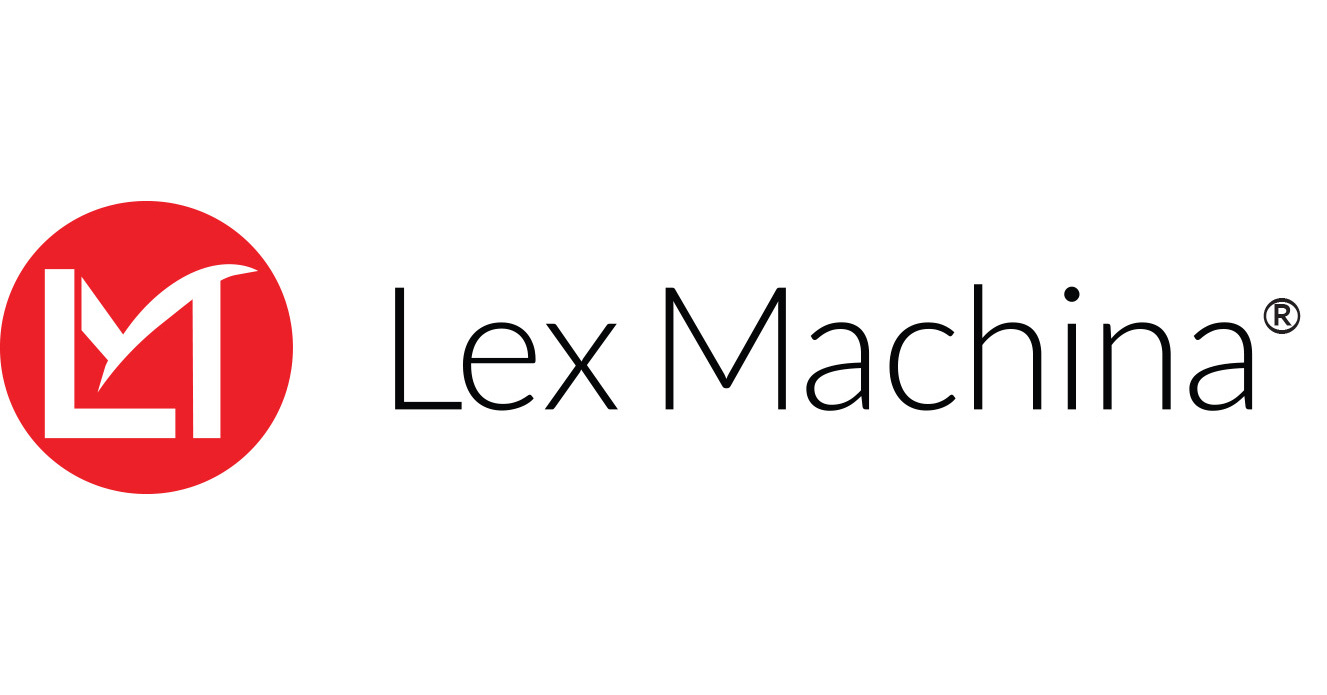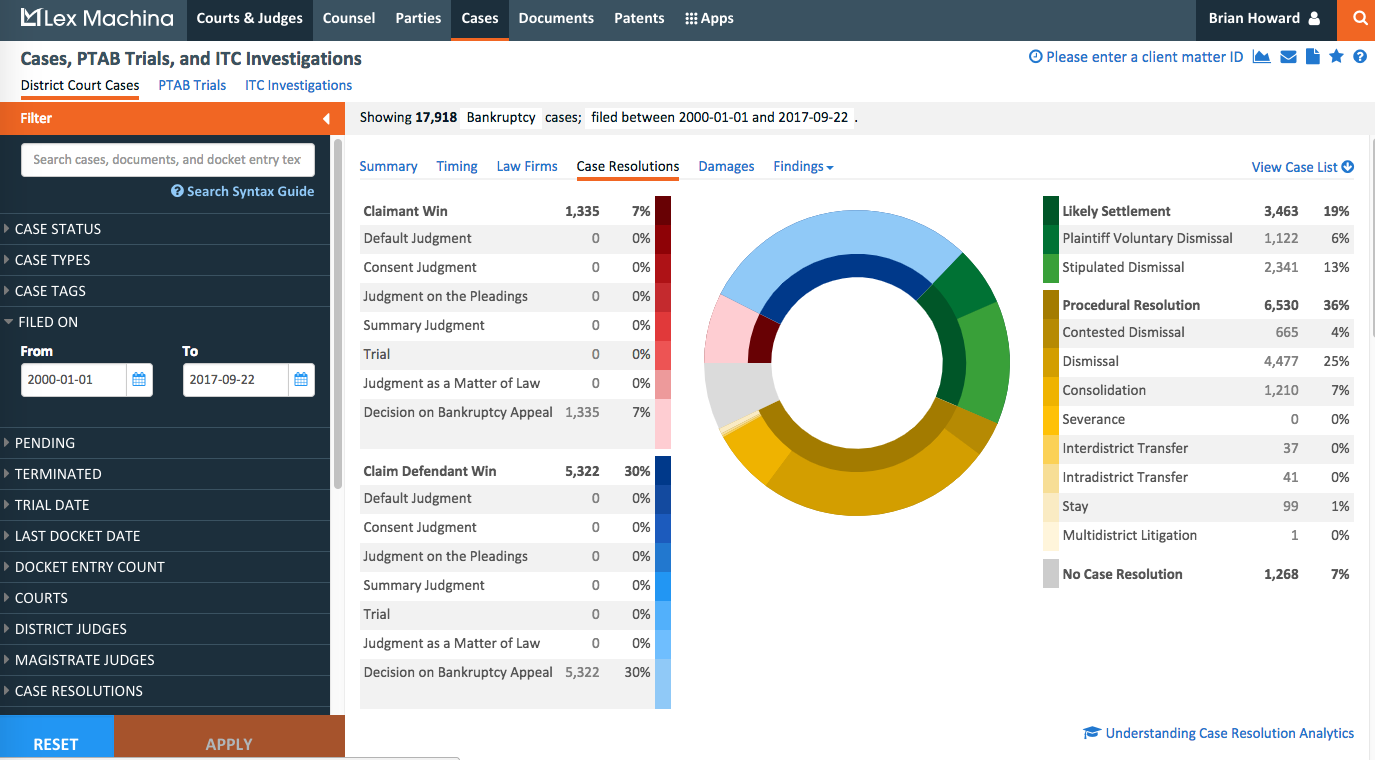
Lex Machina: Complete Buyer's Guide
Leading predictive analytics platform for litigation strategy enhancement
Lex Machina positions itself as the leading predictive analytics platform specifically designed for litigation strategy enhancement, transforming how legal professionals approach case outcomes through data-driven judicial insights and comprehensive federal court analysis.
Market Position & Maturity
Market Standing
Lex Machina occupies a specialized leadership position in the legal analytics market, focusing specifically on predictive litigation analytics rather than attempting comprehensive legal AI functionality.
Company Maturity
The platform's organizational stability benefits from LexisNexis backing, providing extensive legal data resources and sustained development capabilities that smaller competitors cannot match.
Growth Trajectory
Growth projections indicate substantial market expansion from $1.07 billion in 2023 to $16.9 billion by 2033[11].
Industry Recognition
Industry recognition stems from the platform's established presence in legal analytics and demonstrated customer success stories.
Strategic Partnerships
Strategic partnerships with LexisNexis provide access to comprehensive legal databases and organizational resources that support sustained platform development and customer support capabilities.
Longevity Assessment
This corporate support structure suggests long-term viability and continued platform development.
Proof of Capabilities
Customer Evidence
Customer implementation evidence centers on DLA Piper's reported success with Lex Machina integration, achieving 35% improvement in litigation success rates, 28% increase in favorable settlements, and 40% reduction in legal research time[8][29][30].
Quantified Outcomes
The reported improvements in litigation success rates and research efficiency represent measurable value that extends beyond simple cost reduction to include revenue enhancement through improved case outcomes and increased billable hour capacity.
Market Validation
Market validation indicators include the platform's continued development and expansion efforts, such as state court coverage enhancement that addresses market demand for broader jurisdictional applicability.
Competitive Wins
Competitive performance evidence positions Lex Machina's reported accuracy and efficiency gains within industry standards for specialized legal analytics tools.
Reference Customers
Reference customer analysis based on available evidence suggests adoption among sophisticated legal organizations with substantial litigation practices and resources for comprehensive AI implementation.
AI Technology
Lex Machina's AI technology core centers on predictive analytics capabilities that process comprehensive federal court case databases to identify judicial behavior patterns and case outcome trends.
Architecture
The predictive modeling architecture addresses specific legal challenges including judge behavior analysis, settlement probability assessment, and strategic timing optimization for legal motions.
Primary Competitors
Primary competitive landscape includes specialized legal analytics platforms like Pre/Dicta and Canotera, which achieve similar 85% accuracy rates in federal motion predictions and liability assessment respectively[17][19].
Competitive Advantages
Competitive advantages center on Lex Machina's comprehensive federal court database coverage and established market presence backed by LexisNexis resources.
Market Positioning
Market differentiation stems from the platform's specialized focus on predictive analytics rather than attempting comprehensive legal AI functionality.
Win/Loss Scenarios
Win/loss scenarios favor Lex Machina in situations involving substantial federal litigation practices, dedicated AI implementation resources, and organizational commitment to data-driven strategy enhancement.
Key Features

Pros & Cons
Use Cases
Featured In Articles
Comprehensive analysis of AI Client Outcome Simulation Tools for Legal/Law Firm AI Tools for Legal/Law Firm AI Tools professionals. Expert evaluation of features, pricing, and implementation.
How We Researched This Guide
About This Guide: This comprehensive analysis is based on extensive competitive intelligence and real-world implementation data from leading AI vendors. StayModern updates this guide quarterly to reflect market developments and vendor performance changes.
39+ verified sources per analysis including official documentation, customer reviews, analyst reports, and industry publications.
- • Vendor documentation & whitepapers
- • Customer testimonials & case studies
- • Third-party analyst assessments
- • Industry benchmarking reports
Standardized assessment framework across 8 key dimensions for objective comparison.
- • Technology capabilities & architecture
- • Market position & customer evidence
- • Implementation experience & support
- • Pricing value & competitive position
Research is refreshed every 90 days to capture market changes and new vendor capabilities.
- • New product releases & features
- • Market positioning changes
- • Customer feedback integration
- • Competitive landscape shifts
Every claim is source-linked with direct citations to original materials for verification.
- • Clickable citation links
- • Original source attribution
- • Date stamps for currency
- • Quality score validation
Analysis follows systematic research protocols with consistent evaluation frameworks.
- • Standardized assessment criteria
- • Multi-source verification process
- • Consistent evaluation methodology
- • Quality assurance protocols
Buyer-focused analysis with transparent methodology and factual accuracy commitment.
- • Objective comparative analysis
- • Transparent research methodology
- • Factual accuracy commitment
- • Continuous quality improvement
Quality Commitment: If you find any inaccuracies in our analysis on this page, please contact us at research@staymodern.ai. We're committed to maintaining the highest standards of research integrity and will investigate and correct any issues promptly.